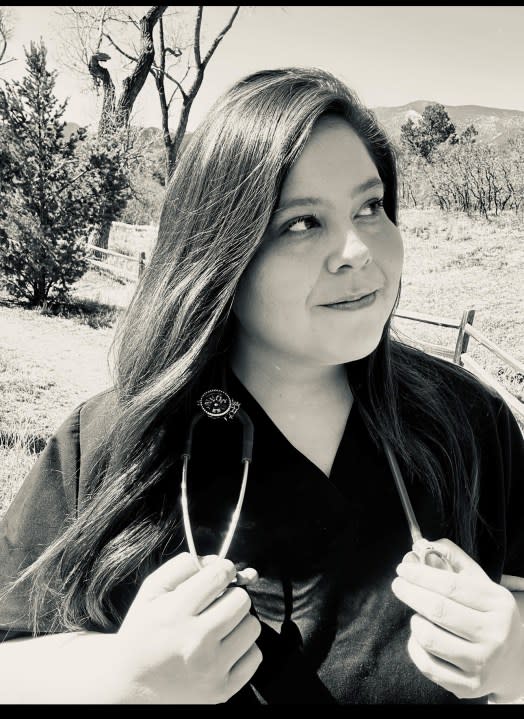Nursing crisis and compassionate care: The journey of a correctional nurse

(COLORADO SPRINGS) — When Kirby Morales-Mauro was in nursing school, she learned about the role of nurses in correctional facilities, setting her on a path that led her to her “dream job” at the El Paso County Jail.
According to the International Association of Forensic Nurses, correctional nurses provide healthcare to those incarcerated in the criminal justice system. They can work in a variety of settings, including jails, prisons, and juvenile detention centers. They are often the first healthcare professional to see an inmate about a medical condition and determine the required treatment.
When Kirby learned about Correctional Nurse careers while working on completing the practical nursing program at Concorde Career College in Aurora, she knew that was the path she wanted to take. On the same morning that she learned she had passed the National Council Licensure Examination (NCLEX), and had earned her nursing license, she saw a job opening for a correctional nurse job in her community.

That same day she applied for the job, was called for an in-person interview, and was offered the position a few hours later. She has worked at the El Paso County Jail since February.
Kirby expressed her commitment to compassionate and nonjudgmental care. “These inmates are part of our society,” she said. “They are someone’s child, someone’s spouse, someone’s parent, uncle, cousin, friend, and taking care of their loved ones—even just for them if that is how we need to look at it—is worth it.”
Kirby had firsthand experience with the power of compassionate nursing. Her family went through a very difficult time with the death of her mother, and a nurse at the hospital named Joan spent a lot of time with the family and showed incredible compassion.

A month later Joan attended Kirby’s surprise birthday party and gifted Kirby her special pink stethoscope, knowing she was soon heading into nursing school. “She said that was her stethoscope from when she started nursing, and it was the scope she used with my mom,” Kirby said. “She was retiring and told me, ‘Now you’re going to take it forward.’”
May is National Nurses Month and is dedicated to recognizing the dedication and care these healthcare workers show to those who need it. But nursing, as with other areas in the healthcare system, is facing a crisis.
According to the National Council of State Boards of Nursing (NCSBN), the COVID-19 pandemic amplified already existing problems of burnout and stress, within the U.S. nursing workforce, adding pressure to already stressful jobs and led to staffing shortages, and the problem hasn’t gotten better.
According to a study by the NCSBN, the workforce has lost approximately 100,000 registered nurses in recent years, and the problem is likely to increase, with 22% to 32% of the nursing workforce actively considering retiring or leaving the profession in the near future.
The main factors driving nurses to consider leaving the profession are reported as issues including insufficient staffing levels, desire for higher pay, not feeling listened to or supported at work, and the emotional toll of the job. Young nurses who have recently entered the workforce face an increased likelihood of burnout due to feeling overwhelmed by unexpected challenges, and this trend has made it difficult to replace the decreasing population of nurses.
Correctional nursing can provide its own challenges in addition to those faced by the nursing workforce at large. According to the National Commission on Correctional Health Care, the correctional nursing workforce also faces longstanding challenges with staffing, and it can be difficult to find the right people to fill the available roles.
Security lockdowns, court appointments, and other logistical challenges can present barriers to providing timely healthcare to patients. Nurses have to be willing to adapt to a wide range of medical scenarios, with fewer options for specialized referrals and patients coming in with varied and often difficult medical backgrounds, and the population can be unpredictable. Additionally, navigating the politics of working within the system can prove challenging to those trying to advocate for their patient’s needs.

The nursing workforce is the heart of the healthcare system and requires workers to have a passion and dedication to their jobs and those they care for that often exceeds what most people have to offer. Correctional nursing calls for individuals, like Kirby, who are willing to overcome prejudice and be flexible to collaborate within the system, and who are committed to advocating for a population whose voices often go unheard.
For the latest news, weather, sports, and streaming video, head to FOX21 News Colorado.

